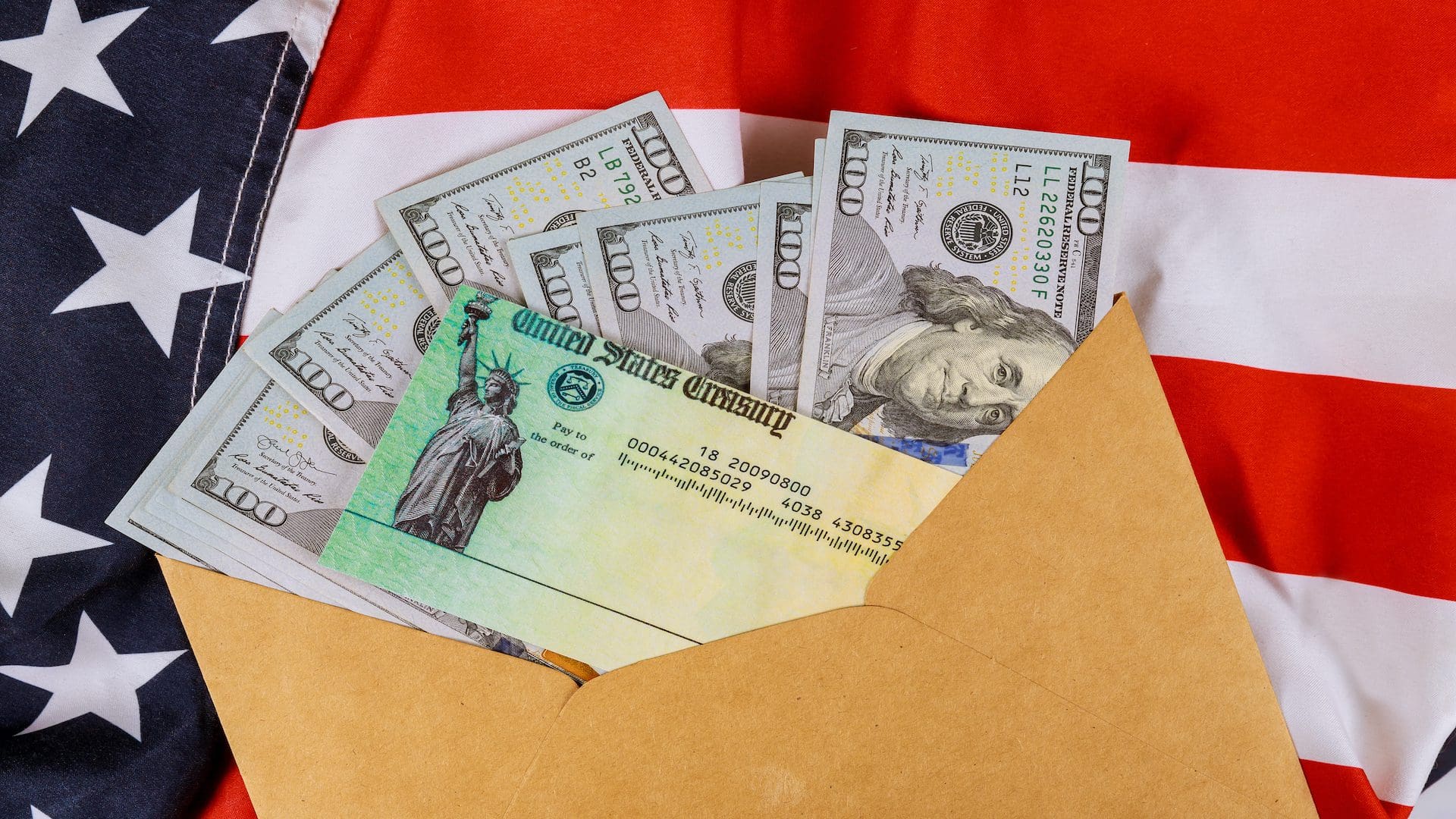Inflation has drastically slowed consumer spending, and it is faster than expected. And this slowdown has been sending alarm bells about the economy to many analysts. They now maintain that recession is closer to us than we think and in the absence of a stimulus, the check could hit Americans harder than before.
Americans have already seen every sign of inflation as prices of essentials go through the roof. Gas prices, rent, groceries, and every other basic necessity have reached a stage that pre-existing wages cannot meet. And still some experts say that we could avert a recession, and even if it does strike, things might not be as bad as in 2008.
The Stimulus Check And A Prolonged Downturn In Economic Activity
With all the rapid changes before us, business decision-makers have been left wondering how their potential customers could react shortly to the recession. And they are left wondering if the spending habits could see a change as a result.
This prolonged downturn in economic activity will occur even as the value of services and goods sees a drastic fall for two or more consecutive quarters. This business cycle contraction reflects not just the low value of regular goods, but also a slide in income levels, stock prices, and industrial production.
Recessions are a normal part of the business cycle and can be induced by several factors that include economic shock, changes in consumer habits, and other major economic changes. But in recent months that has been a select few factors that seem to have pushed up concerns about an imminent recession even though one still has not been confirmed or declared.

Even though we are not exactly in a recession, the signs of a major one are all over. The concerns of a major recession in 2023 are expected and consumers have exhibited signs that they are going in for major changes in their spending habits.
Most consumers surveyed in the past quarter have responded to changes. Thirty percent of consumers have said they were spending significantly less and twenty-eight percent said they were spending money more concisely that in the previous months.
And a second study a few weeks later revealed that the percentage has been going up. The number of respondents who said that the news of an imminent recession had impacted their spending rose from thirteen percent to twenty percent as the festive season drew near.
The number of respondents who said that the news of the recession did not affect their spending has dropped significantly from seventeen percent to thirteen percent.
A rise in the cost of services and goods in the absence of a stimulus check has caused consumers to become extra cautious when it comes to frivolous and unnecessary spending. And it is apparent that Americans are experiencing the effect a lot quicker than earlier anticipated.
Changes In Consumer Spending In A Year Marked By The Absence Of Stimulus Checks
When it comes to consumer spending behavior, it is more often contingent on multiple outside factors. News of immense changes in the economy is worth looking into. There are various consumer decisions that react and respond to financial uncertainty or any signs of a potential future recession. This becomes even more pronounced in the absence of any form of stimulus check.
The two years of the pandemic were marked by multiple stimulus checks both at the federal level and some at the state and local levels. But it was predominantly the federal stimulus checks that brought about changes in consumer spending habits and had a positive effect on the overall economy.
For the first time in decades, low and moderate-income consumers could afford to put food on the table, pay their rent and other debts, and avoid homelessness. They still manage to set aside a part of the money for investment or paying off old debts.
These changes had an immensely positive effect on the economy and this led to a boom within months of the pandemic coming to an end. This was a departure from the earlier recession like the Great Recession that gripped the economy for years before the situation took a turn for the better.
Consumer Response In A Recession
Consumer spending is always dependent on outside factors and any news of drastic changes in the economy is something that should always be considered. Most consumers, close to two-thirds, declared that they would go in for a decrease or continue to decrease their home budget in the event of a recession.
Even as inflation eased to below the 8% mark in the last quarter of 2022, wages remained way behind inflationary figures. And the only way out for consumers was to cut back on spending to match wages to income.
For the first time in decades, people were faced with the prospect of negative earnings as wages miserably fell behind the rise in prices. The post-pandemic months were marked by a healthy rise in wages with a 3.5% rise on average.


But it was way behind the rise in prices with inflation staying consistently above the 8% mark throughout 2022. This difference of close to 5% meant that people were earning less post the pandemic in real terms.
During recessionary times, the spending behavior of people also changes. People surveyed in the last two quarters of the past year reported changes in their spending patterns and went typically for the necessities. The major spending was on essential groceries, food, rent, housing bills, mortgage, essential personal products, medication, and healthcare.
The data reflected more of a shift toward self-preservation than shopping for pleasure. Thus, by eliminating the cost of entertainment and leisure, people were able to ensure that their families were taken care of before spending their money on things like spending on travel, movies, or investing in unpredictable and high-risk markets like bitcoins.
But the fears of a recession have not necessarily meant a total pause in entertainment, retail, or other non-essential services. Even in the absence of any major stimulus check, and none from the federal administration, around 10% of citizens said that they would invest in online or digital entertainment, and 9% said that they would invest in eating out at bars and restaurants.






